Transatlantic relations in the age of "America First" (Sophia Besch)
An interview with Sophia Besch, Research Fellow, Center for European Reform.
Super-synergies could arise from cross-border projects
Shared projects, shared tenders and joint R&D projects could see low-cost offshore windfarms and interconnectors criss-crossing the North Sea.


Preserving defence partnerships with US and UK is a key interest for France.
Nicolas Sarkozy used to promote himself as a transatlanticist or anglophile French president. Emmanuel Macron seems to have taken this approach a step further. Macron appears to have taken upon France and himself the responsibility of not allowing Britain and more importantly, the United States to drift too far away from Europe. Is he succeeding in this?


Europe de la défense : les différences persistent entre Berlin et Paris


Macron wants a powerful EU
French President Emmanuel Macron is accelerating EU defense cooperation. The biggest obstacle are the French-German cultural differences. Can terrorism, Trump and Putin force closer military cooperation in Europe? Yes, says Barbara Kunz, research fellow at the French Institute for International Relations (Ifri) in Paris and expert on defense cooperation in the EU.
Reforming the EU electricity markets - Florian ERMACORA
Florian Ermacora, Head of the Internal Energy Market Unit in DG Energy, explains how the Clean Energy Package will improve the functioning of the internal electricity market, and how the new market design will help integrating larger shares of renewables.
EU Leaders Meet in Versailles to Hash Out Bloc’s Future
Four top European leaders hold talks Monday on the future of the European Union, at a time when it faces multiple crises that are sparking doubts about its very existence. Hosted by French President Francois Hollande at the iconic Versailles palace outside Paris, the dinner meeting that brings together German, Italian and Spanish leaders comes amid heated discussion about how to move forward the deeply troubled European Union in the face of Brexit, rising nationalism and an EU-skeptic Trump administration in Washington.
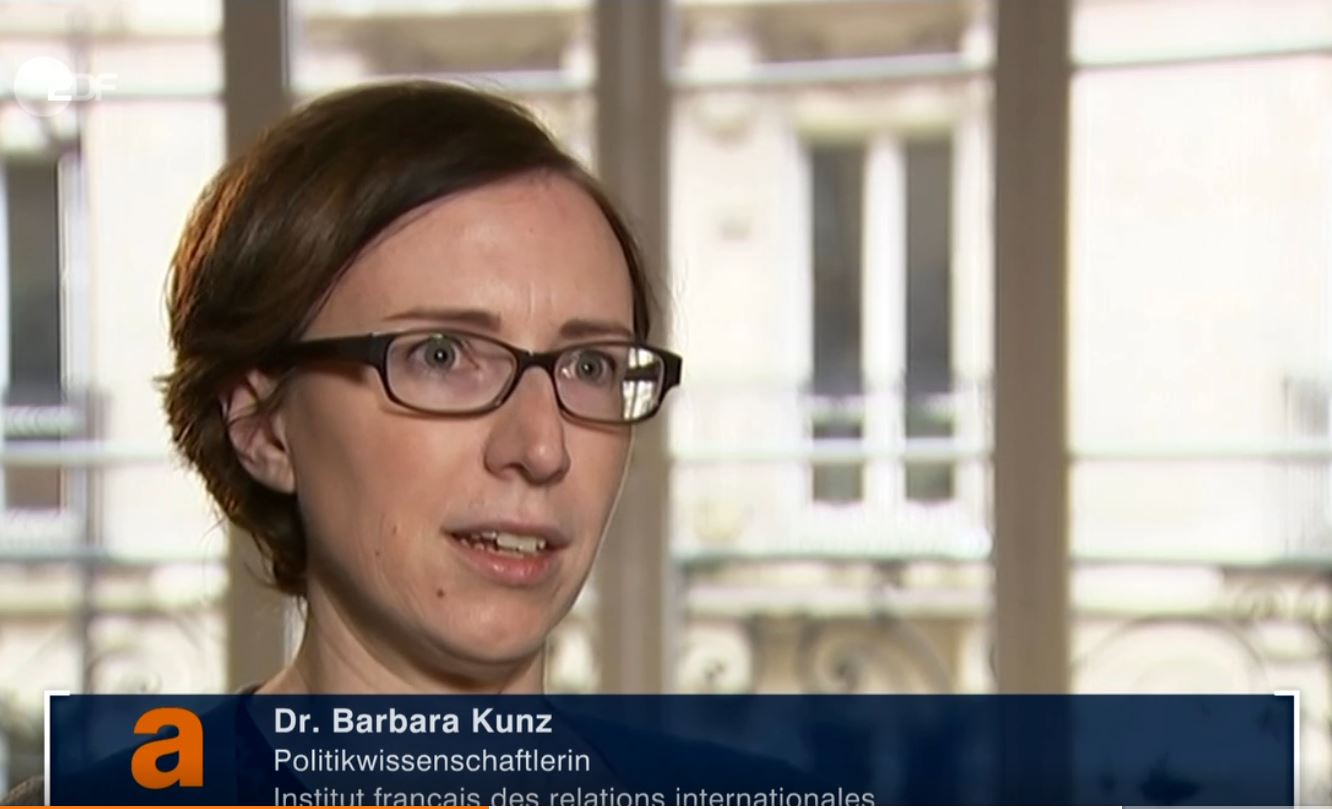

The fight for the Elysée ...and for Europe
On Germanys second channel, ZDF, Barbara Kunz enlarges upon the French presidential election in May.
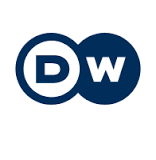

Juncker, the optimist
The president of the European Commission about security, investment and assistance in Africa. According to Hans Stark, Jean-Claude Juncker didn't beat around the bush and instead of going too far in self-chastisement he tried to give hope to European citizens.


What's next for Europe after Brexit?
Vivien Pertusot was interviewed after the vote in United Kingdom in June on what the consequences of Brexit are for the future of the European Union.
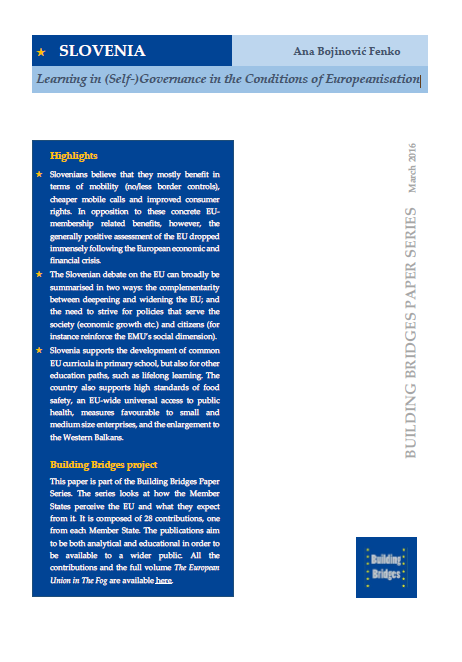
Slovenia: Learning in (Self-)Governance in the Conditions of Europeanisation
Slovenians believe that they mostly benefit in terms of mobility (no/less border controls), cheaper mobile calls and improved consumer rights. In opposition to these concrete EU-membership related benefits, however, the generally positive assessment of the EU dropped immensely following the European economic and financial crisis.
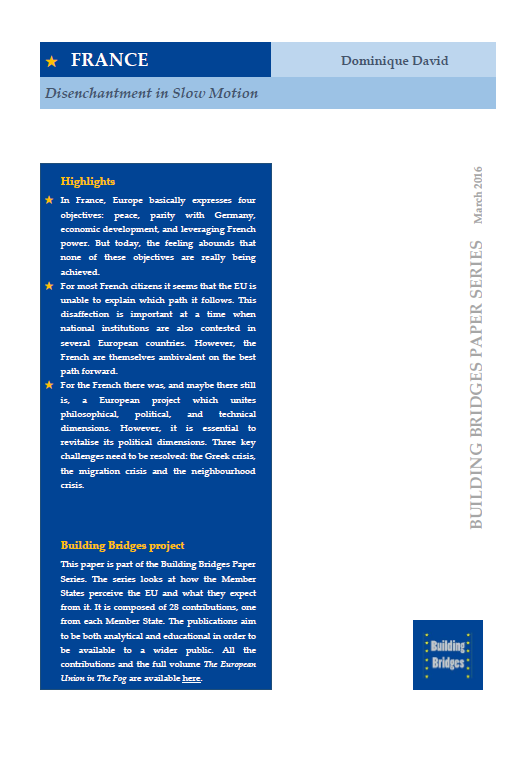
France: Disenchantment in Slow Motion
In France, Europe basically expresses four objectives: peace, parity with Germany, economic development, and leveraging French power. But today, the feeling abounds that none of these objectives are really being achieved.
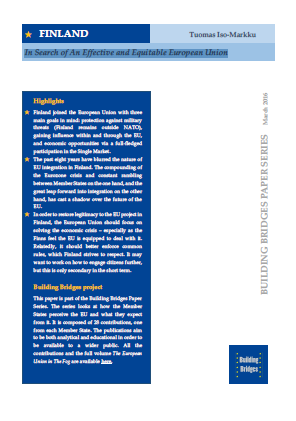
Finland: In Search of an Effective and Equitable European Union
Finland joined the European Union with three main goals in mind: protection against military threats (Finland remains outside NATO), gaining influence within and through the EU, and economic opportunities via a full-fledged participation in the Single Market.
The European Union in the Fog, Introduction.
The Building Bridges project looks at the national perspectives on the European Union. This publication gathers contributions from across the EU. It sheds light on Member States’ motivations to participate in the EU and views on its future. Accessible and analytical, this volume is an ideal reference guide for practitioners, experts, students and European citizens.
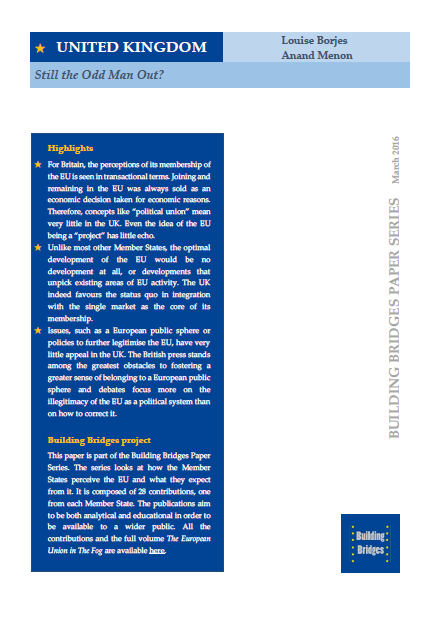
United Kingdom: Still the Odd Man Out?
For Britain, the perceptions of its membership of the EU is seen in transactional terms. Joining and remaining in the EU was always sold as an economic decision taken for economic reasons. Therefore, concepts like “political union” mean very little in the UK. Even the idea of the EU being a “project” has little echo.
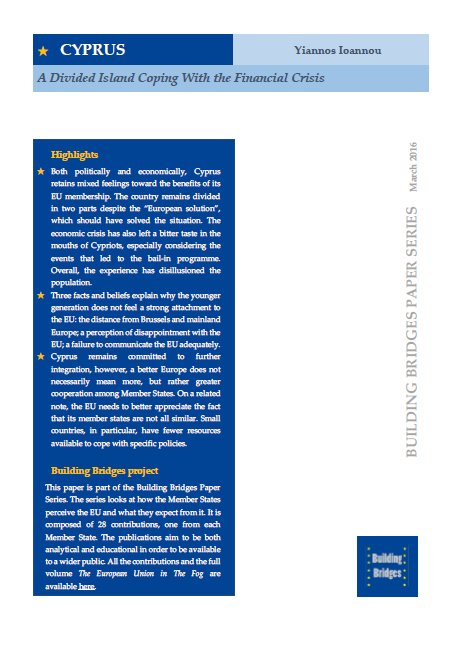
Cyprus: A Divided Island Coping with the Financial Crisis
Both politically and economically, Cyprus retains mixed feelings toward the benefits of its EU membership. The country remains divided in two parts despite the “European solution”, which should have solved the situation. The economic crisis has also left a bitter taste in the mouths of Cypriots, especially considering the events that led to the bail-in programme. Overall, the experience has disillusioned the population.
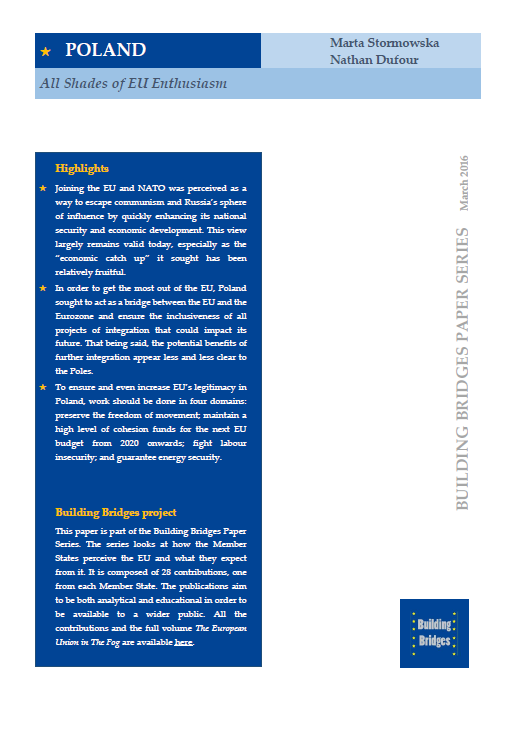
Poland: All Shades of EU Enthusiasm
Joining the EU and NATO was perceived as a way to escape communism and Russia’s sphere of influence by quickly enhancing its national security and economic development. This view largely remains valid today, especially as the “economic catch up” it sought has been relatively fruitful.
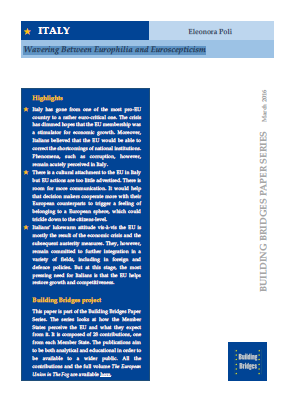
Italy: Wavering Between Europhilia and Euroscepticism
Italy has gone from one of the most pro-EU country to a rather euro-critical one. The crisis has dimmed hopes that the EU membership was a stimulator for economic growth. Moreover, Italians believed that the EU would be able to correct the shortcomings of national institutions. Phenomena, such as corruption, however, remain acutely perceived in Italy.
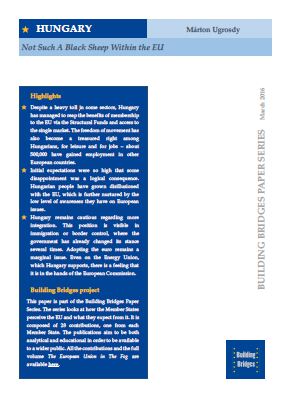
Hungary: Not Such a Black Sheep Within the EU
Despite a heavy toll in some sectors, Hungary has managed to reap the benefits of membership to the EU via the Structural Funds and access to the single market. The freedom of movement has also become a treasured right among Hungarians, for leisure and for jobs – about 500,000 have gained employment in other European countries.
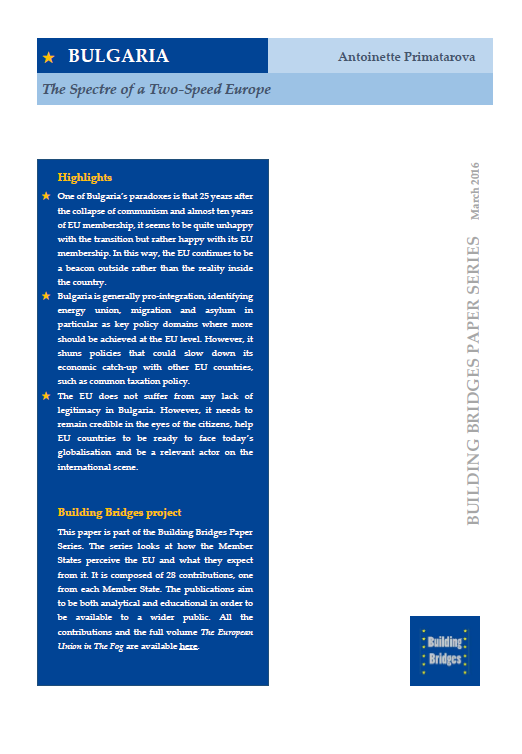
Bulgaria: The Spectre of a Two-Speed Europe
One of Bulgaria’s paradoxes is that 25 years after the collapse of communism and almost ten years of EU membership, it seems to be quite unhappy with the transition but rather happy with its EU membership. In this way, the EU continues to be a beacon outside rather than the reality inside the country.
Support independent French research
Ifri, a foundation recognized as being of public utility, relies largely on private donors – companies and individuals – to guarantee its sustainability and intellectual independence. Through their funding, donors help maintain the Institute's position among the world's leading think tanks. By benefiting from an internationally recognized network and expertise, donors refine their understanding of geopolitical risk and its consequences on global politics and the economy. In 2024, Ifri will support more than 70 French and foreign companies and organizations.














